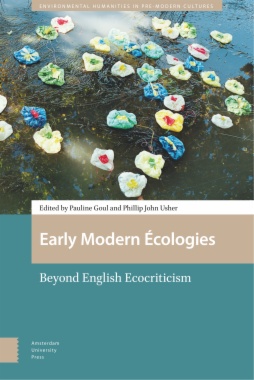Early Modern Écologies is the first collective volume to offer perspectives on the relationship between contemporary ecological thought and early modern French literature. If Descartes spoke of humans as being ‘masters and possessors of Nature’ in the seventeenth century, the writers taken up in this volume arguably demonstrated a more complex and urgent understanding of the human relationship to our shared planet. Opening up a rich archive of literary and non-literary texts produced by Montaigne and his contemporaries, this volume foregrounds not how ecocriticism renews our understanding of a literary corpus, but rather how that corpus causes us to re-think or to nuance contemporary eco-theory. The sparsely bilingual title (an acute accent on écologies) denotes the primary task at hand: to pluralize (i.e. de-Anglophone-ize) the Environmental Humanities. Featuring established and emerging scholars from Europe and the United States, Early Modern Écologies opens up new dialogues between ecotheorists such as Timothy Morton, Gilles Deleuze, and Bruno Latour and Montaigne, Ronsard, Du Bartas, and Olivier de Serres.
- Contents
- Acknowledgments
- Introduction
- Part I
- 1. The Complementary Deaths of the Thinking Subject and of the Citizen Subject
- 2. Producing a Marxist Concept of Liberation
- 3. Postpolitical Politics and Global Capitalism
- 4. The Exacerbation of Uneven Development: Analysis of the Current Regime of Accumulation
- 5. The Possibility of a New State I: Delinking
- Part II
- 6. Models of Liberation I: The Politics of Identity
- 7. Models of Liberation II: The Politics of the Place of the Subject
- 8. Models of Liberation III: The Politics of the Event
- 9. Models of Liberation IV: The Religious Transcendent
- 10. Models of Liberation V: Nomad Politics
- Part III
- 11. The Possibility of a New State II: Heterotopia
- 12. Prospects for the New Political Subject and Liberation
- Conclusion
- Notes
- Bibliography
- Index

